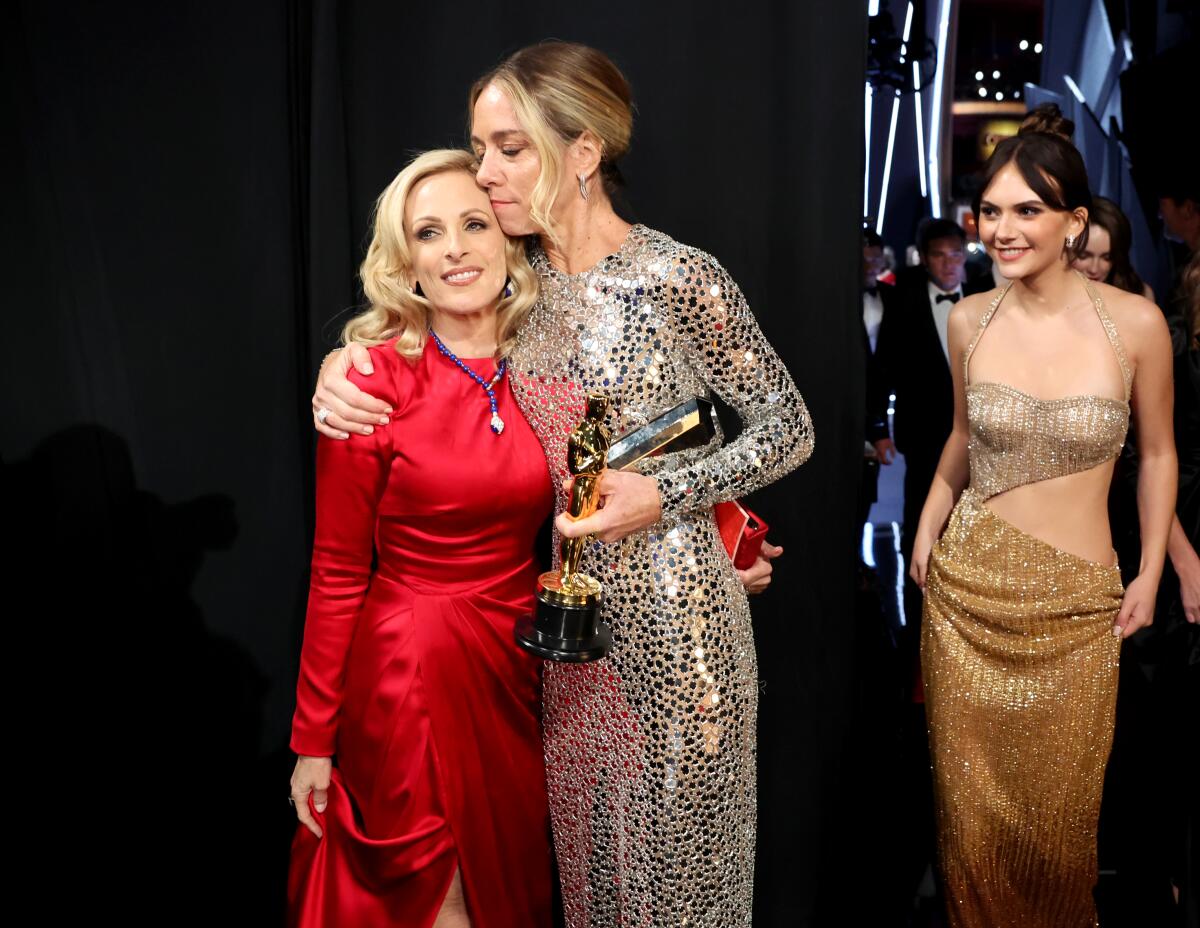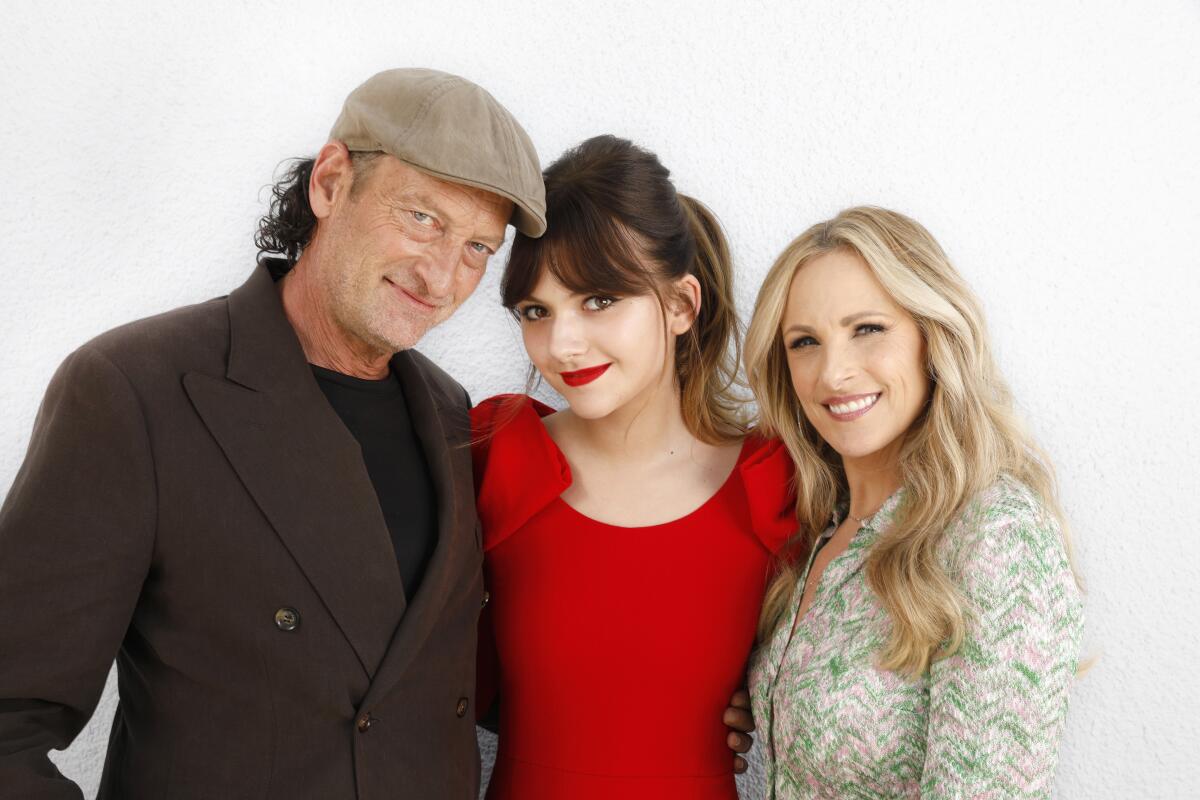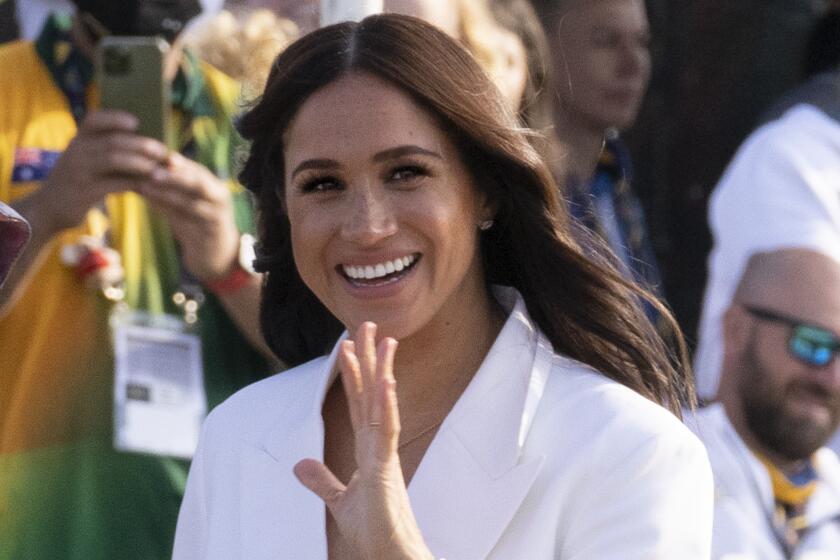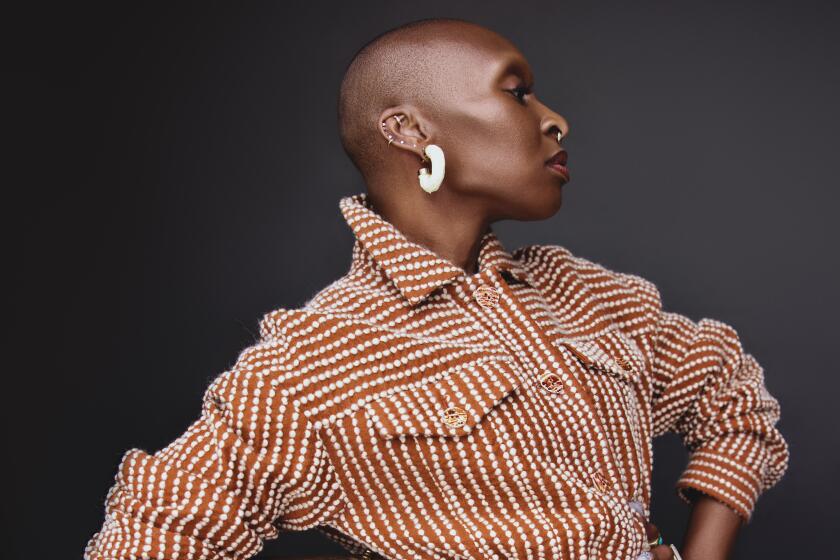Marlee Matlin sees Deaf culture flowing into the Hollywood mainstream. ‘Keep making it happen’

- Share via
Marlee Matlin slept in the morning after the 94th Academy Awards. When she woke, she said via an interpreter for a phone interview Monday, she didn’t feel like putting on makeup. She’d been applying it for almost a year straight promoting “CODA,” the film that made history when it won the Oscar for best picture.
Though she kindly declined a FaceTime interview, she was thrilled to talk sans cameras about the visibility the Deaf community has gained through the success of “CODA.” Matlin, after all, knows a thing or two about what visibility can mean.
After 35 years, she is no longer the sole Deaf performer to have won an Oscar. In the shining moment when her “CODA” co-star Troy Kotsur stepped onstage to accept the statue for supporting actor, Matlin at long last had company.
“I’m so relieved right now, I can’t even tell you — my feeling that a weight has been lifted off my shoulders,” Matlin said. “The recognition that Troy got last night is long overdue — that people recognize his work, our work.”
Matlin was referring to Deaf performers and artists, who got a giant boost in visibility as “CODA” grew from film festival darling to Oscar front-runner and, finally, winner.
But Matlin said it’s not time to sit back and bask. The work of bringing Deaf culture and performers into the Hollywood mainstream is ongoing, she said. It must continue.
She should know. After winning the lead actress Oscar for “Children of a Lesser God” in 1987, Matlin said she was extremely grateful for the work that followed. But at the same time, it felt as if many in the industry forgot there were Deaf people out there — that there were other actors who wanted to work.
“You might see them in guest appearances here and there, but nothing like ‘CODA,’ where you had three Deaf actors carrying the film,” she said.
So much of the Deaf community was on display in the film, Matlin said. “Deaf culture and deaf jokes and sign language jokes, and having to deal with everyday life and hearing people, and dealing with family lives and a child that is an interpreter.”
This story, she said, is just one story of millions of Deaf stories.
“People seem to forget that we’re part of the diversity conversation,” Matlin said. “You can’t just pay lip service to visibility. More than anything you have to make it happen.”

The success of “CODA” means that for the time being, people are much more aware of Deaf culture and sign language, she said. They understand that it can be woven seamlessly into story lines. But, she cautioned, “It doesn’t mean you’re going to blow open the doors. It’s up to us to keep making it happen. We have to put the welcome mat out there and work.”
Matlin is eager to keep moving in the right direction. She said she has always developed her own projects, and she has about six in the works, including one television project for which she will serve as the director — which is in and of itself a groundbreaking role for a Deaf artist in network TV.
Speaking of network TV, Matlin said her Oscars experience — the accessibility, the interpretation — was very good overall, but she said the film academy still has work to do. She noted that in a year when so many films featuring Deaf actors and Deaf culture were being honored, the academy missed an opportunity to have a Deaf presenter or performer onstage during the ceremony. (“Audible,” about a football team at Maryland School for the Deaf, was up for short subject documentary; “Drive My Car,” which won international feature, features Park Yurim as an actress who uses Korean Sign Language.)
Matlin would like to see more Deaf people represented at the awards in future years, and she is looking forward to sitting down with the academy to discuss it — soon, when there is still plenty of time to plan.
“I’m not talking about a hearing person with an interpreter,” she said. “I’m talking about Deaf people standing onstage, or presenting or introducing, or even hosting.”
Matlin said she has attended the Oscars about eight times, and she generally has an interpreter in the seat beside her because she’s usually the only Deaf person in the room. This year, however, she estimated that nearly 20 Deaf people were present, and that the academy was very aware of their needs. She applauded the tablets that the academy made available to deaf guests, but she would like to see an interpreter onstage throughout the night, translating for the television audience.
Matlin felt confident that she and others can continue to effect change.
“I’ve never been a person who’s been angry. I might have been disappointed to some degree, but unfortunately I’m used to that,” she said. “I trust that people will listen — they have in the past — and make things better.”
There was a final question that had to be asked of Matlin, apologetically, because there were so many more important issues to address, and to celebrate.
Did the “CODA” team feel overshadowed in its win by the Will Smith slap that reverberated across the internet?
“Viral moments are obviously the ones that get the most attention. But the bottom line is, we know who won, and we are still enjoying our win,” Matlin said, adding: “If you’re talking about what actually happened, I, as a victim of domestic violence once in my past, do not condone violence whatsoever. It was sad for me to see that.”
More to Read
The biggest entertainment stories
Get our big stories about Hollywood, film, television, music, arts, culture and more right in your inbox as soon as they publish.
You may occasionally receive promotional content from the Los Angeles Times.











